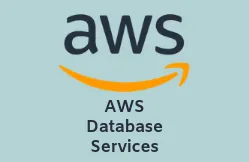AWS Web Hosting
Recently I joined a new company, here I am assisting US based client who wanted to host their newly developed WordPress application at reliable hosting provider. As AWS consultant, I recommended him to go for AWS hosting. So, he asked me what’s difference in Normal hosting & AWS hosting? I have explained him in detail about hosting differences, hosting types & benefits of AWS hosting. Client was very impressed & he asked me to move his existing Static website & Enterprise Website to AWS. This obliviously helped my new company to earn more revenue & needless to say my Manager was very happy having me in his team. So below are the things I have mentioned to my customer.
Difference Between Normal Web Hosting & AWS Web Hosting:
Normal Web Hosting providers such as GoDaddy, Hostinger etc. offers following services: Shared hosting (Server shared with multiple users with limited access & small set of functionalities), Virtual private server hosting (With VPS you get flexible access as privileged user, but it is still one physical server split into several virtual servers) & Dedicated Server hosting (A dedicated machine for which you have privileged access to its hardware too.). All these services are for hosting basic websites.
AWS Web Hosting is cloud-based hosting which provides Infrastructure as a Service (IaaS). Here you will be a privileged user for managing the network, managing security, managing users, managing the operating systems, managing the app that are installed on the servers except the hardware which will be managed by IaaS. It offers two categories in its service: Standard Amazon EC2(It is a VPS with ability to retire many servers through an API) & Dedicated Amazon EC2(It is like dedicated server with flexibility of VPS). Both the services are for hosting all type of websites/applications.
AWS Hosting Types:
Generally, websites are categories into 3 types i.e. Simple Ecommerce Website, Static Website & Enterprise Website. So, for this 3 categories Amazon offers 3 types of AWS hosting.
1. Simple Website Hosting: As I mentioned my client want to host his WordPress site which is a Content Management System (CMS), all such CMS sites applications considered as Simple website as they only use single web server. So simple hosting is for websites built with WordPress, Joomla, Drupal, Magento, LAMP, LEMP, MEAN & NodeJS. All of them are easy to build, update, manage & use. Most of the blogs, marketing sites or content sites are developed with the above software are having medium traffic so considering their scalability low cost is involved in managing these sites.
2. Static Website Hosting: My client has his personal informative website which contains some text, few images & videos on it. This is a static website developed in HTML, JavaScript which are client-side scripting. So, the website which has no server-side scripting fall under Static website hosting. These websites require no changes which means no server administration is required for them. So, it involves very low cost.
3) Enterprise websites : My client’s company website was complex dynamic websites which has millions of users around the world, so it requires more services & increasing usage support to provide scalability. All the dynamic complex media sites, social sites, travel sites and other application-heavy websites are considered as Enterprise Websites which need to dynamically scale resources and high level instant support to cater demand as it has high traffic every time. Specially for these Enterprise websites there are multiple AWS services, so it spans multiple data centers known as Availability Zones. As these Enterprise websites has high levels of availability, scalability, and performance, so it requires higher amounts of management and administration than static or simple websites.
Benefits of AWS Hosting: – Cost Efficient: AWS hosting is reliable affordable and highly secured web hosting solution. – High availability: AWS hosting provides high availability, so it has more up time than dedicated server. – Scalable: AWS hosting is scalable, so we can create or destroy the VM on the fly. – Flexible: AWS hosting is more flexible than Dedicated server. – Virtualization: Deployed on high end hardware and use virtualization to allow many virtual computers to run on that hardware
– Backup: In AWS hosting, websites are easily being backed up and moved between data centers.
Monitoring: AWS hosting is built into the Cloud software so monitoring and patching is more efficient. – Accessibility: AWS servers never go down as if there should be an occurrence of any issue, other available hubs takes control over the workload. – Versatility of assets: In AWS, increasing or removing existing resources like registering centers, RAM, and capacity, according to workloads, is simple and straightforward. – Redundancy: In cloud, if one server fails, others will take its place. Great redundancy indeed.
– Available from any location: As you know Cloud is available via internet it allows the users to access the data from any location. So, users just have to pay for the services they use.
Most Popular Courses
AWS Certification Certification | Big Data | Google Cloud Certification







